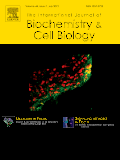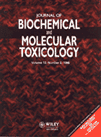
STRESS-THE INTERNATIONAL JOURNAL ON THE BIOLOGY OF STRESS
Scope & Guideline
Pioneering Research in the Biology of Stress
Introduction
Aims and Scopes
- Mechanisms of Cellular Stress Response:
Research on how cells respond to various stressors, including oxidative stress, metabolic stress, and environmental challenges, detailing the pathways and molecular mechanisms involved. - Stress and Disease Linkages:
Exploration of the connections between stress responses and various diseases, particularly cancer, neurodegenerative disorders, and metabolic syndromes. - Innovative Therapeutic Strategies:
Development and evaluation of novel therapeutic approaches targeting stress-related pathways, including pharmacological agents, dietary interventions, and gene therapy. - Psychosocial Factors in Health:
Investigation of the role of psychosocial factors in health and disease, emphasizing the importance of adaptation and resilience in stress management. - Microbiota and Stress Interactions:
Study of the gut-brain axis and how gut microbiota influence stress responses, health outcomes, and therapeutic interventions. - Cellular and Molecular Targets for Cancer Treatment:
Identification of potential molecular targets for cancer therapy, focusing on stress pathways that can be manipulated to enhance treatment efficacy.
Trending and Emerging
- Role of Non-coding RNAs in Stress Responses:
Emerging research highlights the importance of non-coding RNAs, such as circRNAs and miRNAs, in regulating stress responses and disease processes, particularly in cancer. - Integration of Microbiome Research:
An increasing emphasis on the interplay between the microbiome and stress responses, particularly how gut microbiota can influence health outcomes and treatment efficacy. - Targeting the Immune System in Stress-Related Diseases:
A noticeable trend towards understanding the role of the immune system in stress-related diseases, including cancer immunotherapy and inflammatory responses. - Psychosocial and Behavioral Aspects of Stress:
Growing interest in the psychosocial dimensions of stress, including adaptation mechanisms and the impact of lifestyle interventions on health outcomes. - Innovative Imaging and Diagnostic Techniques:
Emerging technologies in imaging and diagnostics are being explored to enhance our understanding of stress responses and disease progression.
Declining or Waning
- Traditional Pharmacological Approaches:
There seems to be a reduction in papers focusing solely on traditional pharmacological interventions for stress-related diseases, possibly due to a shift towards more integrated and holistic approaches. - Basic Stress Physiology Studies:
Research centered on basic physiological responses to stressors without direct clinical implications appears to be less frequent, indicating a trend towards more applied research. - Static Models of Disease:
There is a waning interest in studies using static or non-dynamic models for understanding stress-related disease mechanisms, as recent papers favor more dynamic and interactive models.
Similar Journals

Cell Death Discovery
Advancing insights into the mysteries of cell death.Cell Death Discovery, published by Springer Nature, is a distinguished open-access journal dedicated to advancing the field of cell death research. Since its inception in 2015, the journal has rapidly established itself as a premier platform for high-quality research, currently holding a remarkable position in the Q1 quartiles across multiple categories, including Cancer Research, Cell Biology, Cellular and Molecular Neuroscience, and Immunology. With an impact factor reflecting its significant contribution to the scientific community, Cell Death Discovery invites submissions that explore the molecular mechanisms of cell death and its implications across various biomedical fields. The journal's open-access model ensures that groundbreaking research is accessible to a global audience, facilitating collaboration and dissemination among researchers, professionals, and students alike. Located in the UK, at CAMPUS, 4 CRINAN ST, LONDON N1 9XW, ENGLAND, the journal continues to support innovative scholarship and foster a deeper understanding of the processes behind cell viability, development, and disease.

ARCHIVES OF PHYSIOLOGY AND BIOCHEMISTRY
Advancing the Frontiers of Physiology and BiochemistryArchives of Physiology and Biochemistry, published by Taylor & Francis Ltd, is a renowned journal that has been pivotal in advancing knowledge and research in the fields of physiology and biochemistry since its inception. With an impact factor reflective of its significant contributions, this journal is categorized in Q2 in Medicine (miscellaneous) and Q3 in Physiology, underscoring its relevance and scholarly impact within the scientific community. The journal publishes original research articles, review papers, and innovative methodologies that explore the intricate relationships between physiological functions and biochemical processes. With its commitment to fostering scientific discourse, the Archives of Physiology and Biochemistry serves as an essential resource for researchers, professionals, and students alike, providing insights and evidence that drive forward the frontiers of medical and physiological science. The journal is accessible in both print and online formats, ensuring that critical research reaches a wide audience.

Eneurobiologia
Connecting Minds Through Neurobiological DiscoveriesEneurobiologia is an esteemed open-access journal published by UNIV VERACRUZANA, INST INVESTIGACIONES & EDUCACION, dedicated to advancing research in the vibrant field of neurobiology. With its launch in 2010, the journal aims to disseminate high-quality, peer-reviewed research articles that explore the complexities of neural systems, neurodevelopment, and neurodegenerative disorders. By providing a platform for both established researchers and emerging scholars, Eneurobiologia fosters interdisciplinary collaboration and knowledge exchange within the scientific community. Its open-access model ensures that valuable findings are accessible to a global audience, promoting the widespread application of neurobiological research. As a crucial resource for students, professionals, and researchers alike, Eneurobiologia plays a pivotal role in shaping the future of neurobiological studies and enhancing our understanding of the brain and nervous system.

BIOFACTORS
Elevating Research Standards in Biochemistry and MedicineBIOFACTORS, an esteemed journal published by Wiley, serves as a pivotal resource in the fields of Biochemistry, Clinical Biochemistry, and Molecular Medicine. With ISSN 0951-6433 and E-ISSN 1872-8081, the journal has established its reputation since its inception in 1988, showcasing a rich history of scientific inquiry and innovation. Recognized for its high academic standards, it currently holds a Q1 ranking in key categories, including Biochemistry and Medicine (miscellaneous), and ranks in the top 10% for Clinical Biochemistry according to Scopus metrics, reflecting its impact and influence in the scientific community. Although it does not offer Open Access, BIOFACTORS provides researchers the opportunity to publish and disseminate high-quality studies that advance our understanding of biological factors and their clinical implications. The journal actively encourages contributions that bridge the gap between laboratory findings and clinical applications, making it a vital platform for both seasoned researchers and emerging scholars in the life sciences.

Neurobiology of Stress
Innovating Insights into Stress MechanismsNeurobiology of Stress is an esteemed open-access journal dedicated to advancing the field of stress research, published by ELSEVIER SCIENCE INC. Since its inception in 2015, the journal has rapidly ascended in academic prestige, achieving a remarkable Q1 ranking across multiple categories, including Biochemistry, Cellular and Molecular Neuroscience, and Endocrinology, among others. With an impact-driven approach, it focuses on the intricate mechanisms of stress response at molecular, cellular, and systemic levels, making it an essential resource for researchers, professionals, and students alike. The journal fosters interdisciplinary collaboration and innovation, providing a platform for cutting-edge studies and critical reviews that address the complexities of stress biology. As part of its commitment to accessibility, all published articles are freely available, ensuring that groundbreaking findings reach a global audience. Join a community at the forefront of stress research and contribute to the vital conversations shaping our understanding of neurobiological processes.

CELL STRESS & CHAPERONES
Championing High-Impact Research in Biochemistry and Cell BiologyCELL STRESS & CHAPERONES is a renowned journal that has been at the forefront of advancing our understanding of protein folding, cellular stress responses, and the role of chaperone proteins since its inception in 1996. Published by SPRINGER, this esteemed journal operates out of the Netherlands and serves as a critical platform for researchers in the fields of Biochemistry and Cell Biology. With an impressive impact factor reflecting its credibility—ranked Q2 in Biochemistry and Q3 in Cell Biology for 2023—it showcases rigorous, peer-reviewed research that contributes significantly to the understanding of cellular mechanisms and their implications in health and disease. The journal's commitment to disseminating high-quality research is evident through its indexed status ranking in the Scopus database, identifying it among the top quartile of publications in its respective categories. For scholars and practitioners dedicated to exploring the intricate relationship between cellular stress and physiological responses, CELL STRESS & CHAPERONES provides a vital resource, fostering an interdisciplinary dialogue that enhances the scientific community's collective knowledge.

INTERNATIONAL JOURNAL OF BIOCHEMISTRY & CELL BIOLOGY
Pioneering Research in Biochemistry and Cell DynamicsThe International Journal of Biochemistry & Cell Biology, published by Pergamon-Elsevier Science Ltd, stands as a pivotal resource in the fields of biochemistry and cell biology. With an ISSN of 1357-2725 and an E-ISSN of 1878-5875, this prestigious journal has been a key platform for disseminating cutting-edge research since its inception in 1995. The journal currently holds an impressive Q1 ranking in Biochemistry and a Q2 ranking in Cell Biology for the year 2023, reflecting its commitment to high-quality research and its influence within the scientific community. With a significant Scopus ranking of 94/438 in Biochemistry and 96/285 in Cell Biology, the journal plays a crucial role in advancing knowledge and fostering innovative approaches in these dynamic fields. Though it is not an open-access journal, the International Journal of Biochemistry & Cell Biology remains accessible to a wide audience, making it a vital resource for researchers, professionals, and students alike, who are eager to explore and contribute to the ongoing advancements in biochemistry and cell biology.

BIOCHIMICA ET BIOPHYSICA ACTA-MOLECULAR CELL RESEARCH
Exploring the molecular mechanisms of life.BIOCHIMICA ET BIOPHYSICA ACTA-MOLECULAR CELL RESEARCH is a premier journal published by Elsevier, dedicated to advancing the fields of cell biology and molecular biology. Established in 1982, this influential journal has been at the forefront of scientific research and innovation, currently holding esteemed positions with a Q2 ranking in Cell Biology and a Q1 ranking in Molecular Biology for 2023, reflecting its commitment to high-quality scholarship. With an impressive impact factor, it ranks in the 82nd and 78th percentiles for Molecular Biology and Cell Biology, respectively, amongst its peers. Researchers, professionals, and students will find this journal to be an invaluable resource for exploring the latest discoveries and methodologies in the molecular mechanisms underlying cellular functions. Although it is not an open-access journal, the insights offered in its pages contribute significantly to the scientific community's understanding of cellular and molecular processes, ensuring it remains a vital platform for disseminating cutting-edge research.

JOURNAL OF BIOCHEMICAL AND MOLECULAR TOXICOLOGY
Illuminating the Pathways of Biochemical and Molecular ScienceJournal of Biochemical and Molecular Toxicology, published by Wiley, plays a pivotal role in the advancement of knowledge within the fields of biochemistry, toxicology, and molecular biology. Established in 1998, this esteemed journal has garnered a significant reputation, evidenced by its current placement in the Q2 quartile across several categories, including Biochemistry, Health, Toxicology and Mutagenesis, and Medicine. With an ISSN of 1095-6670 and an E-ISSN of 1099-0461, it serves an international audience, offering critical insights and innovative research that shape our understanding of biochemical interactions and toxicological assessments. While it does not operate on an open-access model, the journal ensures rigorous peer review and high-quality publication standards, making it a valuable resource for researchers, professionals, and students dedicated to the exploration of molecular toxicology. The journal's recognized impact within the scientific community is reflected in its competitive rankings among specialized journals, fostering significant contributions to both academic and applied contexts.

Neuropeptides
Advancing Knowledge in Neuroscience and EndocrinologyNeuropeptides is a prestigious, peer-reviewed journal published by Elsevier, focusing on the critical role of neuropeptides in various biological processes and their implications in cellular and molecular neuroscience, endocrinology, and neurology. With an impact factor reflecting its influence in the field and a diverse audience ranging from researchers to healthcare professionals, the journal serves as an essential platform for the dissemination of groundbreaking research from 1980 to 2024. Adhering to high academic standards, Neuropeptides holds a Q3 ranking in Cellular and Molecular Neuroscience and Endocrine and Autonomic Systems, alongside a solid Q2 ranking in both Endocrinology and Neurology. This positions the journal at the forefront of its disciplines, contributing valuable insights into the understanding of neuropeptide functions in health and disease. By not operating as an Open Access journal, it ensures sustainability in the publishing process while upholding rigorous review standards. Researchers, professionals, and students are encouraged to engage with the findings published in this journal, which plays a vital role in advancing knowledge and fostering collaboration within the neuroscientific community.